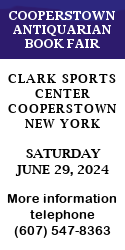Reflections on the 2020 Election (Part 1)
It will be a long time before a full and accurate account of the 2020 U.S. presidential election will be published. Passions remain high, wounds are fresh, friendships have been damaged and lost, and one person's facts are another person's unverified anecdotal evidence – both sides claiming ownership of the real truth. And in case you haven't noticed there are few, if any, reliable fact-checkers to check the fact checkers.
Election fraud is nearly as old as the Republic – the origins of Tammany Hall predate the adoption of the U.S. Constitution by about a year, and in all that time we've never looked back. In modern times the Daley Machine, long a fixture in Chicago politics since its founding in the 1930s by Anton Cermak, became world famous in 1960 when late on election night it delivered Illinois' electoral vote to John Kennedy, thus ensuring his election as the 35th president. The process was simplicity itself. Chicago would traditionally hold its vote tally back until the downstate returns were in – then enough newly discovered votes would often be produced to ensure a Democrat victory. By some accounts the Nixon people were well aware of the fraud but in the interest of national tranquility, didn't challenge the results. On a smaller scale Frank Hague (Democrat) and “Nucky” Johnson (Republican) ran dueling election fraud operations in northern and southern New Jersey, according to the late American historian, Thomas Fleming.
Overshadowing everything in 2020 was the Trump factor. Even before the 2016 election he had become a favorite target of hatred and derision mainly because of his unfiltered and bombastic approach to addressing the very real problems facing the nation, along with people he didn't like very much.
As a one time Democrat turned populist with street smarts, Trump understood that the ruling elites of today have moved beyond Wall Street. Today they also occupy K Street, where money and political power have combined to turn old fashioned influence peddling into a massive growth industry. The reason I don't consider the working press as part of the elite is because in a very real sense they are simply the handmaidens of power. By controlling much of the information flow, knowing very well where their advertising dollars and salaries come from, the cheerleaders of Wall Street and K Street are able to influence how you think and what you think you know. The new oligarchy is not the same as the old oligarchy.
The times have been a changin'... In the 1936 presidential election, the industrial and banking elites and most of academia backed Alf Landon in his bid to unseat FDR. At that time, the American press (mainly the metropolitan daily newspapers) ran news stories and editorial content clearly favoring Landon who was projected to win by a good margin, but lost in a landslide, winning the normally bellwether states of Maine and Vermont, but losing his home state of Kansas, causing a contemporary wit to comment “as Maine goes, so goes Vermont". And an all but forgotten New Yorker cartoon of the period showed a couple of well dressed upper east side matrons, one saying to the other - “I simply don't undertand how Roosevelt could have won, I don't know aaaanyone who voted for him!” - or words to that effect. Not that long ago I overheard a couple of stylishly-dressed matrons on the main street of my village (Cazenovia, NY) echoing that comment - "I just can't think of aaaanyone I know who voted for Trump".
Roosevelt and Trump, different in so many of the obvious ways, did have some things in common. Roosevelt was descended from New England and New York aristocracy, Trump from working class Queens – yet each sought to improve the lives of the working men and women of the country. During the Great Depression the WPA and CCC were credited with giving meaningful work to people who otherwise would have been on the dole – to many this meant bread and dignity and in retrospect most would agree that these programs were what the country needed at the time.
The desperate needs of the second world war that jump-started the economy and brought an abrupt end to the Great Depression, were continued well into the post-war period and launched a period of broadly-based economic expansion that continued until the realities of the '90s made the economic idealism, born of the need and desire to assist in rebuilding post-war European economies, a luxury that the American working class could no longer afford. One part of the Marshall Plan allowed war-damaged European economies (including Germany and Italy) to export goods to the United States tarrif-free, while at the same time European nations were allowed to impose tarrifs on American goods exported to Europe. This lack of reciprocity served its purpose – Europe prospered mightily, while America's industrial base managed to survive in spite of the uneven playing field. But by the 1990s most Americans sensed that something wasn't quite right. (to be continued)

























